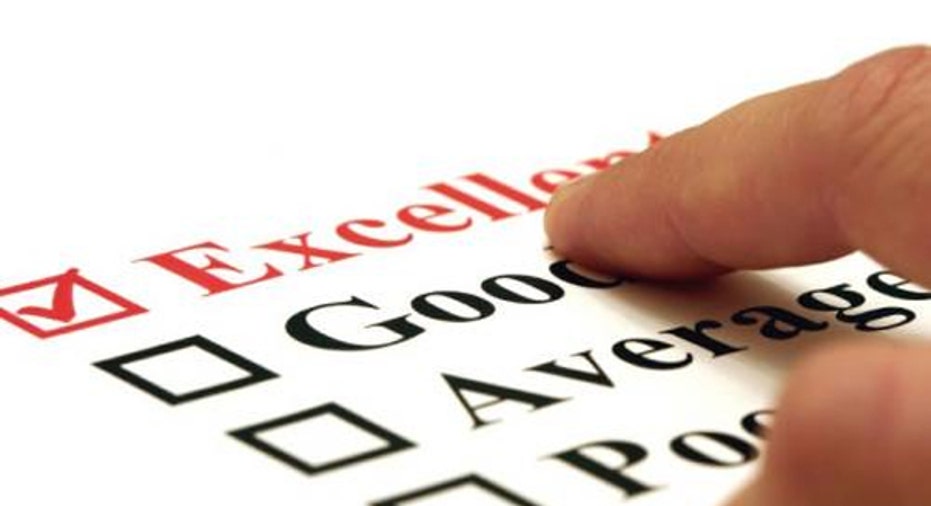Is My Credit Score Good Enough for a Business Card?

Dear Your Business Credit,
My credit scores are 720, 715 and 754. I'm thinking about applying for a business credit card. I opened a business in 2006. Do you think my scores are good enough to apply for a business card? And what is considered excellent credit?
- Charlotte
Dear Charlotte,
Give yourself a pat on the back. Many entrepreneurs take on too much credit card debt in the early years of building a business and hurt their credit scores. You've dodged that hazard and built good credit.
Applying for a business card instead of relying on your personal cards is a good idea on a couple of fronts. Many business cards offer rewards that give you extras for common business purchases, such as office supplies. Using a business card can also help you establish the company as a separate legal entity. If you have formed an LLC, mingling your business and personal credit card purchases can weaken the legal protections you get from the LLC.
As to whether your scores will qualify you for a business credit card, it depends on the credit card issuer and other aspects of your financial situation. Many of the business cards listed on CreditCards.com require "excellent" credit, and issuers will probably look at factors other than just your credit score, such as your annual revenue.
What counts as excellent credit varies according to the scoring system, but on all the major scoring systems, the higher your score, the better. Experian, where scores range from 330 to 830, says scores above 700 "indicate good credit management strategies." Equifax issues scores from 280 to 850. At TransUnion, credit scores range from 300 to 850. These three bureaus also produce the VantageScore, which ranges from 501 to 990.
FICO, which issues the FICO score that most lenders use in making credit decisions, says that credit card "high achievers" generally have scores greater than 785. FICO scores range from 300 to 850.
If you want to get the best deal on a business card, you may want to boost your score into that range before you apply for a card. I recommend going after a credit card deal you want to stick with for a while, even if it means spending the next six months working on your scores. That will help you avoid the cost of, say, doing a balance transfer next year.
How do you lift your credit scores? FICO says the high achievers have several things in common:
- They keep low balances on revolving accounts.
- They don't max out their credit.
- They consistently make payments on time.
These folks have an average of seven credit cards, including both open and closed accounts, and an average of four credit cards with loans or balances. They keep their credit utilization ratio low -- at about 7 percent of their available revolving credit. Two-thirds have total balances of less than $8,500, and 96 percent show no missed payments on their credit report.
It can take some strategizing to get your credit score to the top, but it will put you in a stronger position in the long run. You may reach a point where you need a small-business loan, and having a great credit score will help you get the best deal from your bank, too.
See related: Tips for managing your first business credit card, Business card benefits outweigh limitations for most businesses, Can you apply for a business card -- before you own a business?



















